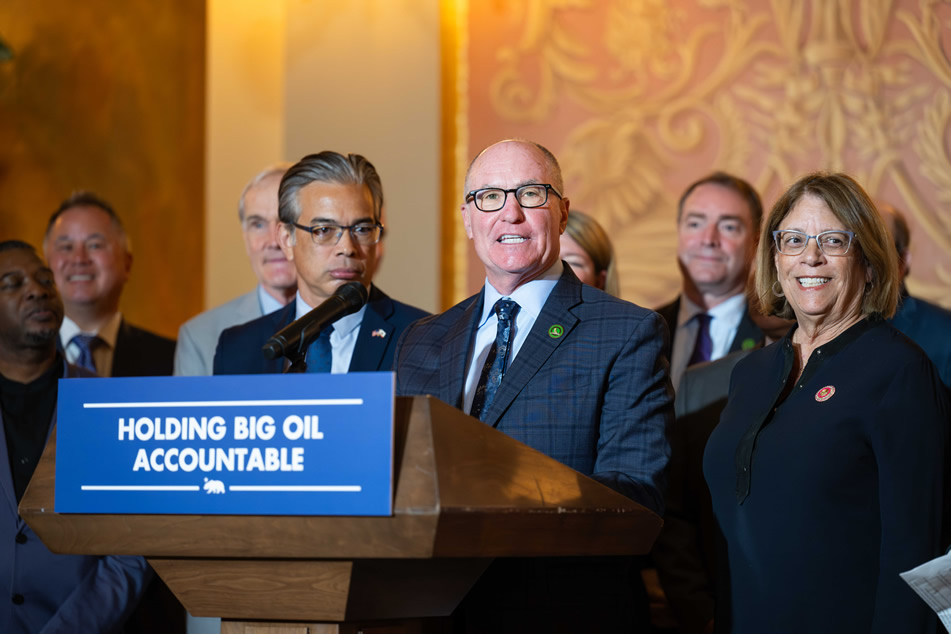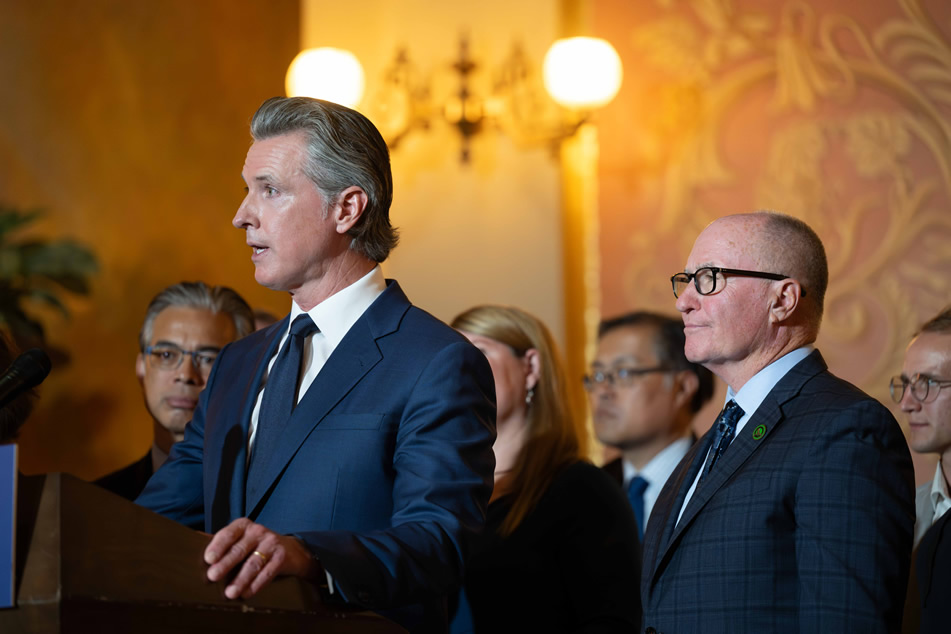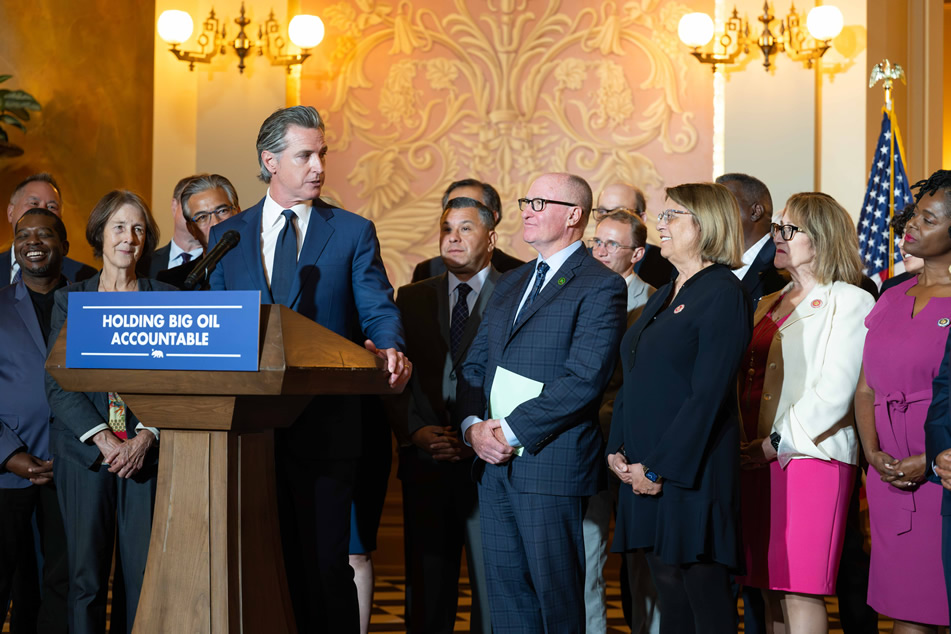
Bill Proposed By Governor Newsom Approved Following Special Session
SACRAMENTO, CA – Today, Assembly Bill X2-1 (Hart, Aguiar-Curry, Skinner) passed out of the Legislature and was signed into law by Governor Newsom. Designed to bring stability to California's oil market, the bill requires refineries to maintain sufficient fuel reserves to prevent the supply shortages that drive up gas prices and burden consumers. Following the Governor's proposal, the bill was thoroughly vetted by energy experts, community advocates, and legislators, advancing a solution that will protect hardworking Californians.
"This landmark legislation is a win for consumers, and a win for accountability in the state's gasoline market," said Assemblymember Gregg Hart (D-Santa Barbara). "ABX2-1 will save working California families billions at the gas pump. This common sense solution has received broad public support because consumers know that when gas prices spike in California, the oil industry unfairly profits."
"Price spikes have cost Californians billions of dollars over the years, and we're not waiting around for the industry to do the right thing — we're taking action to prevent these price spikes and save consumers money at the pump. Now, the state has the tools to make sure they backfill supplies and plan ahead for maintenance so there aren't shortages that drive up prices. I'm grateful to our partners in the Senate and Assembly for acting quickly to push this forward and help deliver relief for Californians," said Governor Gavin Newsom.


"With this new law, big oil companies are now responsible for stabilizing prices at the pump. It's a critical accomplishment, but our work is not done," said Assembly Speaker Robert Rivas (D-Salinas). "I will continue to fight to lower the cost of living, because housing, groceries and everyday necessities must be more affordable for all Californians."
"The single most important thing California can do to prevent gasoline price spikes is to require adequate inventories when refineries go into periods of maintenance," said Consumer Watchdog President Jamie Court. "Governor Newsom rightly called a special session to make sure this critical protection for consumers takes effect in 2025, not 2026. Other states that want to protect against refiner profiteering, like Washington, would be well advised to adopt the same protections. The legislature sent a signal that California won't fall for the same old games that have plagued the state with price spikes for two decades."
Background:
California's oil market is uniquely vulnerable. The State's air quality standards and isolated fuels market mean that prices can be severely impacted by supply disruptions. Nearly all in-state supply comes from a handful of refineries—three in Northern California and five in Southern California, with only one small refinery in Central California. A single refinery outage could drastically reduce refining capacity, by up to 45% in Northern California and 35% in Southern California. This volatility, combined with the higher costs compared to other states, has placed an undue burden on residents with fixed or limited incomes and strained the broader economy. Last year, price spikes at the pump cost consumers more than $2 billion.
On August 31, 2024, the Governor convened a special session of the Legislature to address the issue of gas price spikes. In partnership with the Governor and Speaker Rivas, Assemblymember Hart and Assembly Majority Leader Aguiar-Curry introduced ABX2-1 to protect Californians from preventable gas price spikes. The bill was the subject of extensive public hearings featuring testimony from diverse stakeholders. Following passage in the Legislature, the bill was signed into law on October 14, 2024.
To stabilize California's oil supply and prevent price spikes, ABX2-1 creates a mechanism to require refineries to maintain adequate reserves and properly plan for refinery shutdowns. Specifically, the California Energy Commission will have the authority to require California's petroleum refiners to implement resupply plans and arrangements that adequately offset production losses from refinery maintenance. The Commission can only adopt these regulations if it determines that they will lead to lower average retail prices, increase the fuel supply, and reduce the price volatility at the pumps for consumers.
Gregg Hart represents the California Assembly's 37th Assembly District, which includes Santa Barbara, Goleta, Carpinteria, Montecito, Summerland, Buellton, Solvang, Lompoc, Guadalupe, Santa Maria, Orcutt, and Nipomo. He currently serves as the Chair of the Joint Legislative Audit Committee and Assembly Select Committee on the Nonprofit Sector.
CONTACT: Ethan Bertrand - ethan.bertrand@asm.ca.gov